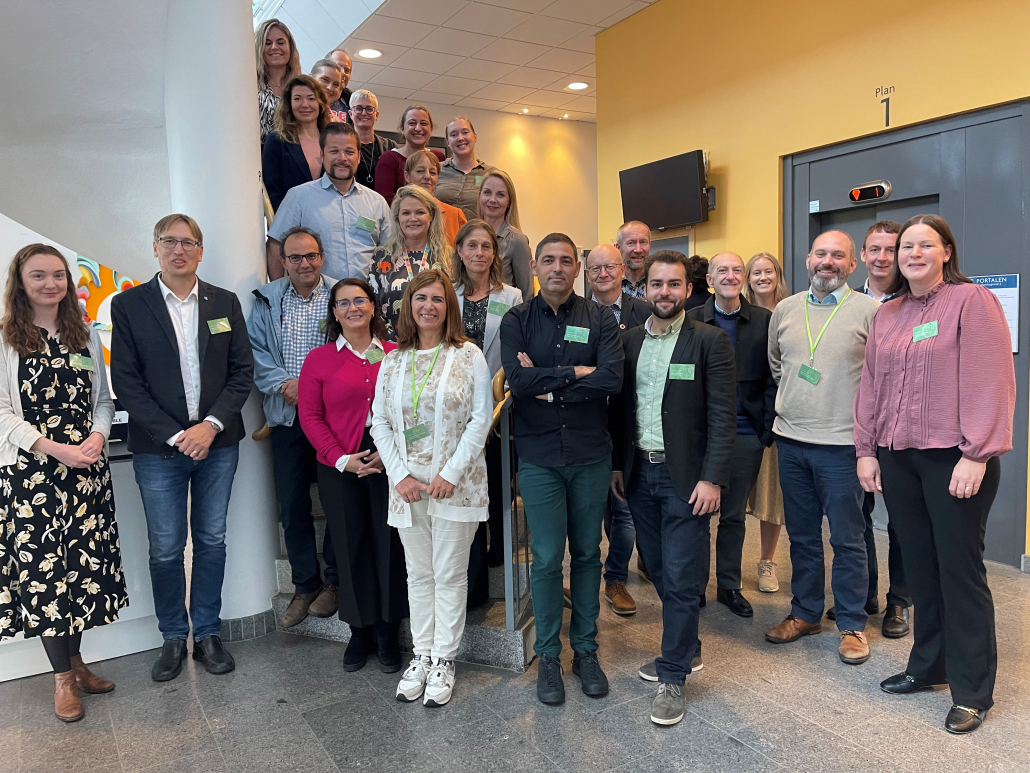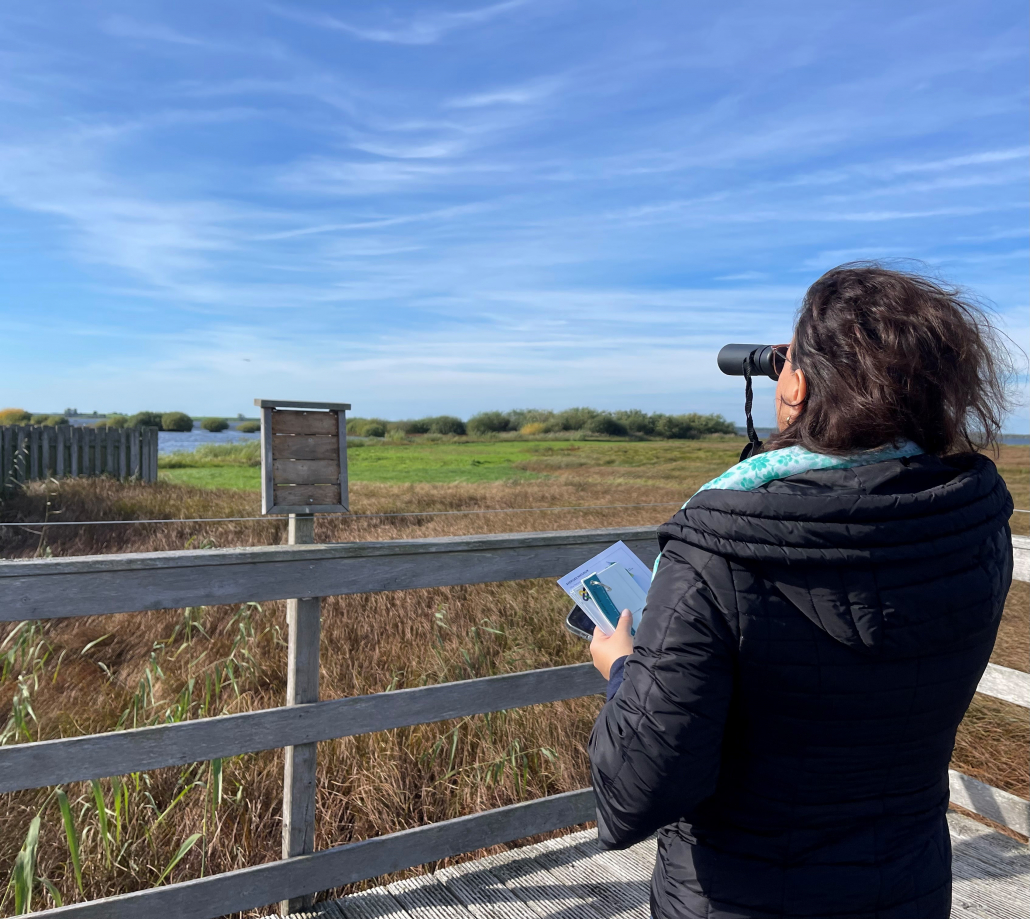Kick-off for INGENIUM’s important work with sustainable development
Group photo at the kick-off for INGENIUM Work Package 7 at the University of Skövde
The successful kick-off at the University of Skövde for INGENIUM Work Package 7 has ended. The participants of WP 7 have contributed with different experiences, ideas and aspects on sustainable development and sustainable work. The important work will now continue and an agenda has been set.
The University of Skövde recently welcomed 19 representatives from universities within the INGENIUM alliance. The participants were all from WP 7 as it was time for the formal kick-off for the work package focusing on Sustainable Development.
“After two days filled with inspiring lectures and exchange of experiences, INGENIUM can now start working on the part that deals with sustainable development in order to be able to offer increased knowledge in sustainability issues for students, employees, and the surrounding society. Several of our partners are far ahead and contribute in this way with knowledge and experience that can benefit the University of Skövde in our own sustainability work,” says Mikael Ejdebäck, Deputy Vice Chancellor for Internationalisation at the University of Skövde.
Establishing INGENIUM Sustainability committee
On the first day, the participants listened to both interesting lectures and presentations. Catherine Carty, UNESCO Chair project manager at Munster Technological University, MTU was the first keynote speaker. She talked about The Principles of the Sustainable Development Goals. She also gave an example of how to involve the local community and increase their interest for sustainable development, thus creating shared value.
The second keynote speaker was Arjen Wals, Professor of Transformative Learning for Social- Ecological Sustainability at Wageningen University and Research. He talked about The Role of Higher Education in Preventing Socio-Ecological Collapse – Principles and Prospects.
Constantine Manasakis, Economist and Associate Professor, and Alexandre Geoffroy, Research Engineer, presented how the universities of Crete and Rouen work with sustainable development.
The INGENIUM Sustainability committee
The INGENIUM Sustainability committee was also formally established. In the committee: Brindusa Sluser, David Diaz Regiosa, Catherine Carty, Constatine Manasakis, Pauline Vuillemin, Marie Rüppell-Wee, Christine Mulder, Olli Ervaala and Yanitsa Docheva.
Hackathon event in April
The main focus of the second day was on deliverables. Pauline Vuillemin, Project Manager at the University of Rouen, talked about plans for the Hackathon that is planned for April 2024. Students applying will be offered a selection of different topics and will then be put together with students from other universities within the alliance. Each team will present their project to the jury, and the winning team will be invited to Rouen during the 10 Days of INGENIUM in May.
There was also a lively discussion about developing course material about sustainable development and also the need for tools for teachers using it.
Tobias Baum, Project Manager, Karlsruhe University of Applied Science pitched workshops from the Green Lab, the En-Roads, and World Climate Simulation. He stated that working collaboratively with different people from different universities is important and is already involved in online events this week.
Why is it important to work on sustainable development?
“It is crucial. If we don’t to something now, the future will be very bleak and not very great for the people following us and also for ourselves. It is important to address the issue on an international scale, we are all in the same boat so to speak,” says Tobias Baum.
From Bulgaria, Yantisa Docheva, International Coordinator, and Magdalena Iskreva, PR Manager, gave examples of how the Medical University in Sofia very successfully involves both students and employees on World Cleaning Daty.
Brîndușa Slușer, Associate Professor at Gheorghe Asachi Technical University of Iași, talked about co-operation with industry.
Vappu Kunnaala-Hyrkki, sustainable coordinator, XAMK, showed how to use a university footprint calculator.
Furthermore, the WP7 will continuously share good practices on an online platform and set up university partnerships for low-carbon and circular economy. Working groups were established and will now continue the important work concerning sustainable development.
Excursion to famous bird lake
The participants who stayed in Skövde for one more day went on an excursion to Lake Hornborga, one of Europe’s most famous bird lakes, where cranes attract more than 100,000 visitors over a four-week period every year. At the nature reserve, which is managed by the County Administrative Board, the manager Sofie Stålhand talked about the importance of the tourism and visitor industry and how they interact with the citizens and companies.
“Lake Hornborga is a unique place and everyone interested in sustainable development and green diversity must come here,” says Brîndușa Slușer, Associate Professor at Gheorghe Asachi Technical University of Iași.
The excursion to Lake Hornborga was an optional activity to the kick-off program
The working group has representatives from universities in ten different European countries. Are there any differences in working with these issues on an international level?
“Different universities have full focus on different parts of sustainable development, but with this ten universities alliance we can reach a broader impact. We will also try to context the project in overall INGENIUM projects and see sustainable development influence the other work packages,” says Catherine Carty, UNESCO Chair project manager at Munster Technological University.




